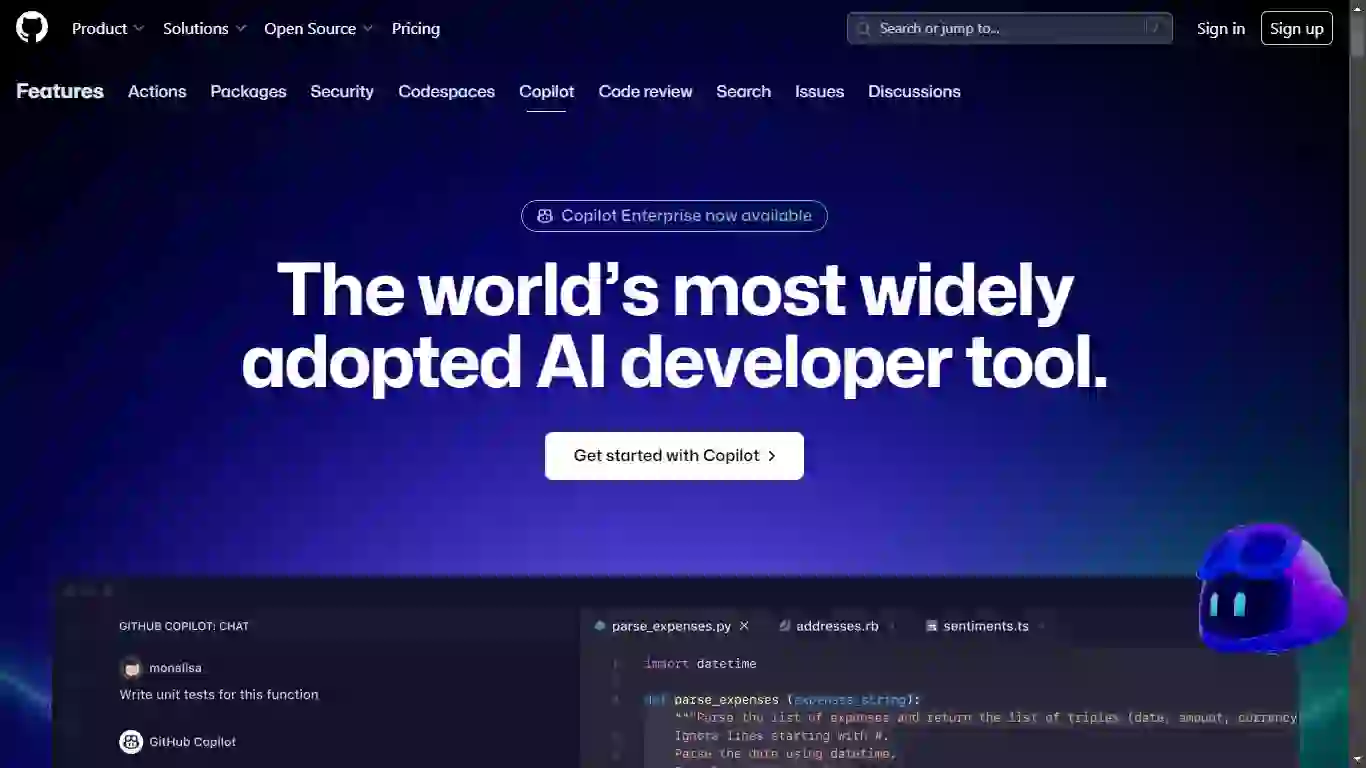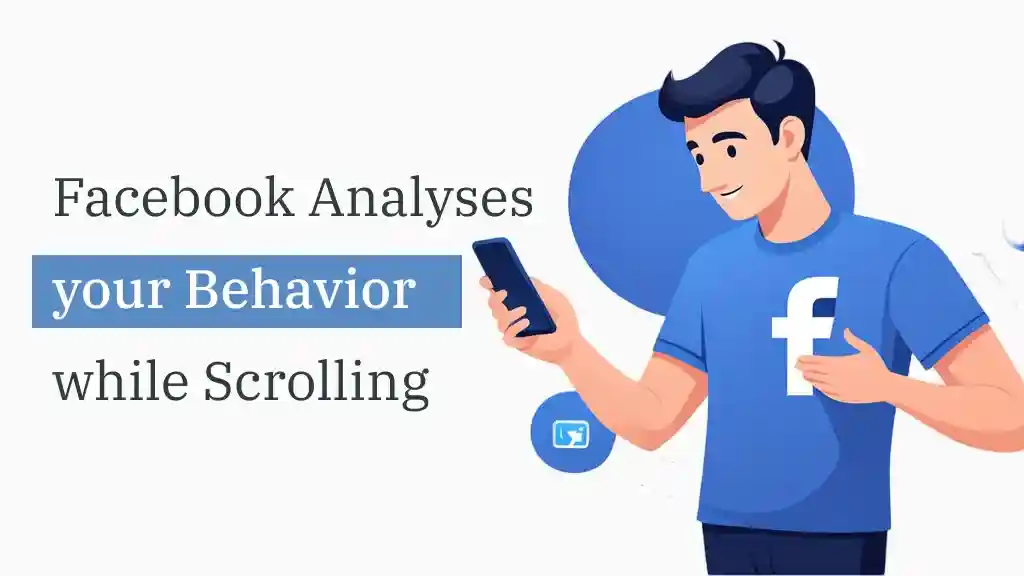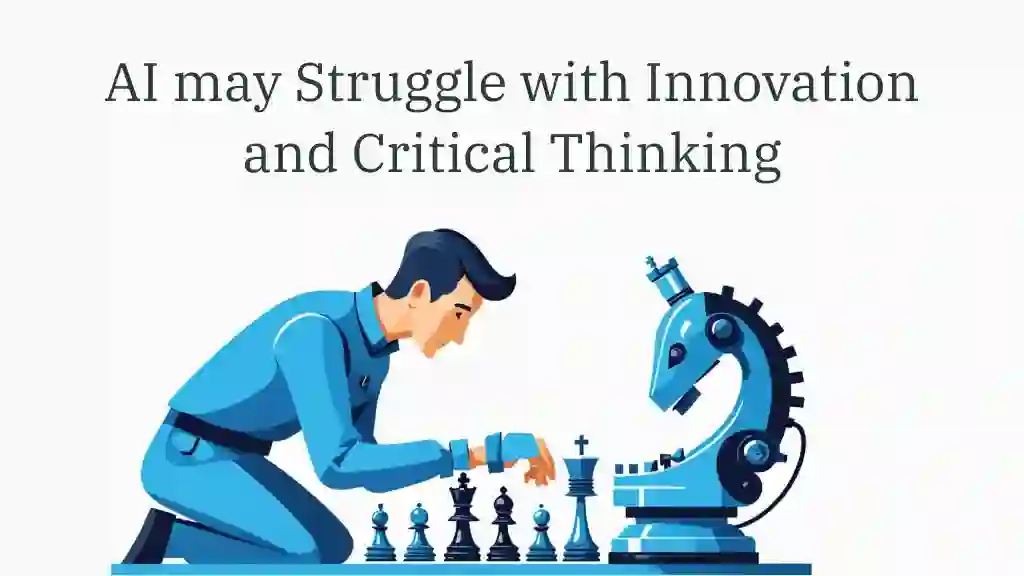Will AI replace Programmers entirely?
AI’s role in software engineering is clearly in its early stages, primarily assisting with simple and repetitive tasks. Therefore, it seems improbable that AI will be able to supplant highly skilled software engineers who specialize in creating intricate and groundbreaking software in the near future.
Here are Few Real Shocking Facts:
OpenAI’s ChatGPT successfully cleared Google’s examination for high-level software developers in the beginning of 2023.
In its grand debut, DeepMind’s AlphaCode surpassed the skills of human programmers. When challenged against a staggering number of over 5,000 human participants, this remarkable AI outshone 45% of expert programmers.
Artificial intelligence (AI) is no longer science fiction; it’s here, changing the game in fields from medicine to finance. And software development? Well, that’s where things get interesting.
Imagine a robot churning out perfect code, fixing bugs in a flash, and writing documentation while you sip margaritas on the beach. Sounds interesting, right?
But, because the question isn’t “Will AI write code?” but “Will it replace developers entirely?”
Let’s face it, AI can already automate some coding tasks like generating basic code or spotting simple bugs. It’s like having a super-fast assistant who never takes coffee breaks.
But can it truly understand the intricate logic and creative problem-solving needed for complex projects? Not quite yet.
When you need to craft a unique sculpture, you still need the artist’s vision and skilled hands. That’s where developers come in.
So, can we relax and let the robots do all the coding? Not quite. While artificial intelligence won’t be replacing developers anytime soon, it will likely reshape the landscape.
Think of it as a collaboration: AI takes care of the tedious stuff, freeing up developers to focus on the big picture, innovation, and the human touch.
So, the future of coding isn’t about robots taking over, but about humans and AI working together.
AI is shaking things up in the world of software development, but is it replacing developers or empowering them? Let’s explore its capabilities, limitations, and how it’s changing the game:
Will AI Replace Programmers?
Table of Contents
AI’s capabilities in software development

Automating the Mundane:
- Code Generation: Artificial intelligence can write boilerplate code, repetitive functions, and standard data structures based on your inputs, saving you time and effort. Imagine instantly generating basic login functionality instead of writing it from scratch! Tools like Github Copilot use artificial intelligence to suggest code completions and snippets, speeding up development.
- Bug Fixing: Bug fixing can be a tiresome task, but AI can help make it easier. By analyzing code patterns, AI can identify potential issues and suggest fixes or highlight areas that need human inspection. Tools like DeepCode utilize machine learning to detect bugs and vulnerabilities, ensuring that errors are caught, even ones that you might overlook.
- Testing: Forget writing repetitive test cases for every edge case. Artificial intelligence can generate automated tests based on your code’s behavior, ensuring thorough coverage without the manual grind. Tools like Applitools AI and Testim.io leverage AI to automate functional and visual testing, freeing you to focus on more complex test scenarios.
Related Article: How to Make Money Using ChatGPT: 10 Profitable Side Hustles
Boosting Efficiency and Productivity:
- Personalized Code Recommendations: Stuck on a coding problem? AI assistants can analyze your code and suggest relevant solutions, documentation, or best practices, like having a personal coding mentor at your fingertips. Tools like Tabnine and Kite use artificial intelligence to recommend completions and relevant coding snippets based on your context.
- Enhanced Code Quality: AI is able to examine code to identify possible problems such as security risks, slow performance, and poor coding practices, assisting in creating more polished and effective code. Programs like DeepGuard and Pylint utilize AI to detect quality issues at an early stage of development, avoiding problems in the future.
- Data-Driven Insights: Need to understand user behavior within your app? Artificial Intelligence can analyze usage data and provide insights into user flows, pain points, and areas for improvement. Tools like Mixpanel and Amplitude use AI to analyze user behavior and provide actionable insights for developers.
Real-World Examples:

- Facebook: How would you feel, scrolling through a newsfeed filled with content you actually care about. AI analyzes your clicks, likes, and shares to curate a personalized feed, while also sniffing out fake news to keep you informed and safe.
- Netflix: Artificial Intelligence dives into your viewing habits, recommending movies and shows that perfectly match your taste. No more endless scrolling, just hours of entertainment perfectly tailored to you.
- Google Assistant: Artificial intelligence powers Google Assistant, understanding your natural language commands and completing tasks like setting alarms, playing music, or answering questions. It’s your personal AI genie, always ready to assist.
- GitHub Copilot: Feeling stuck coding? This AI-powered tool acts like your coding buddy, suggesting code completions and snippets based on your context. Imagine finishing lines of code almost magically, saving you time and frustration.
- DeepCode: Bugs are every developer’s nemesis. DeepCode uses artificial intelligence to scan your code, detecting security vulnerabilities and potential bugs before they cause trouble.
Remember:
- AI is not a magic bullet. It requires training data and human oversight to be effective.
- Artificial intelligence excels at automating repetitive tasks but lacks the creativity and critical thinking skills of human developers.
- The future is in collaboration, with artificial intelligence handling the mundane and developers focusing on innovation and complex problem-solving.
So, is AI a threat? Not at all! It’s a powerful tool that can free developers to focus on what they do best – creating amazing software.
Limitations of AI in software development
While AI is making waves in software development, it’s crucial to remember it’s not a complete replacement for human developers. Let’s explore the areas where artificial intelligence still falls short:

Creativity and Beyond:
- Out-of-the-Box Thinking: AI excels at tasks with defined rules and patterns, but struggles with genuine innovation. Coming up with entirely new concepts or groundbreaking solutions requires a level of creative spark AI currently lacks.
- Contextual Understanding: AI can analyze data and identify trends, but grasping the deeper meaning and nuances requires human judgement. Imagine an AI trying to understand the humor in a meme – it might miss the cultural references and subtle jokes altogether.
- Ethical Considerations: Building software with ethical implications requires careful consideration of societal impact, potential biases, and unintended consequences. This is where human understanding of societal norms and moral judgments becomes crucial.
Human Judgement: Still the Core:
- Decision-Making under Uncertainty: AI may struggle with incomplete information or unexpected situations, requiring human intuition, experience, and adaptability to make crucial decisions. For example, a self-driving car may not have the necessary responses to handle a complex accident involving pedestrians.
- Domain Expertise: While artificial intelligence can learn vast amounts of data, it lacks the deep understanding of specific domains like healthcare, finance, or engineering that human experts possess. Building software in these areas often requires specialized knowledge and the ability to interpret complex regulations and best practices.
- Communication and Collaboration: Effective communication and collaboration among team members are essential in software development. While AI can assist with documentation and project management, human interaction and empathy are still crucial for fostering creativity and generating new ideas. Relying solely on AI-generated reports for project planning could lead to overlooking important insights and discussions that only human interaction can inspire.
Tasks Beyond AI’s Grasp (for now):
- User Experience Design: To create user-friendly and captivating experiences, one must understand human psychology, emotions, and cultural backgrounds. While AI can process user data, translating it into appealing design and smooth interaction is best left to humans. If an AI create a user interface – it may prioritize efficiency over aesthetics, lacking the emotional touch needed for a truly engaging experience.
- Software Architecting: Designing the overall structure and architecture of complex software systems involves strategic planning, foreseeing future needs, and making long-term decisions. This requires a broad understanding of the system’s purpose, potential integrations, and future scalability – areas where AI’s current capabilities fall short.
- Debugging Complex Issues: While Artificial intelligence can detect basic bugs, troubleshooting intricate problems often requires deep understanding of code logic, system interdependencies, and the ability to think outside the box.
Remember:
- AI is still under development, and its capabilities are constantly evolving. What seems impossible today might be achievable tomorrow.
- AI is a powerful tool, but it needs responsible human guidance to ensure ethical and beneficial outcomes.
The Future of Developers and AI
The winds of change are blowing in software development, with AI emerging as a powerful force. AI is poised to become our collaborator, augmenting our skills and unlocking new possibilities. Let’s explore this exciting future:
Collaboration, not Competition:
- AI as the Superpower Sidekick: Imagine an AI that tirelessly handles repetitive tasks like code generation, bug detection, and documentation, freeing you to focus on the big picture – innovation, complex problem-solving, and strategic decision-making. Think of it as having a tireless assistant who handles the mundane, leaving you to unleash your creative genius.
- Human+AI Fusion: The magic happens when we combine human strengths with AI’s capabilities. Developers bring intuition, creativity, and domain expertise to the table, while AI adds speed, efficiency, and data-driven insights. This synergistic team can tackle challenges beyond either’s reach alone, pushing the boundaries of what’s possible.
Imagine an AI analyzing user data, suggesting design improvements, and then collaborating with a developer to bring them to life, creating an experience that’s both innovative and user-friendly.
- Democratizing Development: AI-powered tools can lower the barrier to entry for aspiring developers and citizen developers. With Artificial intelligence handling the complex coding aspects, non-technical individuals can contribute to software creation, fostering diversity of thought and innovation within teams.
Imagine a designer easily building basic prototypes with AI assistance, then collaborating with a developer to refine them, leading to a more well-rounded product.
Skills for a Thriving Future:
- Domain Expertise Remains King: While AI excels at general-purpose tasks, it can’t replace deep understanding of specific fields like healthcare, finance, or engineering. Developers who hone their knowledge in these areas will be invaluable for building software tailored to those domains. Think of a healthcare developer using AI to analyze medical data but relying on their medical knowledge to interpret the results and build tools that benefit patients.
- Creativity and Critical Thinking: AI shines at automating tasks, but it can’t match human creativity when it comes to coming up with new ideas and solutions. Developers who nurture their creative thinking skills will be at the forefront of innovation, designing software that pushes boundaries and solves real-world problems. Imagine a developer using AI to analyze user behavior and then creatively designing a new user interface that makes the software more intuitive and engaging.
- Communication and Collaboration: Working effectively with AI and other humans remains crucial. Developers who can articulate their ideas clearly, collaborate effectively, and build strong relationships with diverse teams will be in high demand. Think of a developer working with a designer and an AI specialist, clearly explaining their vision, understanding each other’s strengths, and collaborating to create a groundbreaking software solution.
- Adaptability and Lifelong Learning: As technology evolves, so must our skillsets. Developers who embrace continuous learning, stay updated with emerging trends, and adapt to new tools and technologies will be well-positioned to thrive in the ever-changing landscape. Think of a developer constantly learning new AI tools, experimenting with different approaches, and adapting their skills to stay relevant in the dynamic world of software development.
Remember:
- AI is a tool, not a threat. Used wisely, it can empower developers to achieve amazing things.
- The future is about collaboration, not competition. Developers and AI will work together to create a more innovative, efficient, and user-friendly software development ecosystem.
- Embrace continuous learning and focus on your unique strengths to thrive in this exciting new era.
Conclusion
AI isn’t here to steal your jobs, it’s here to be your ultimate coding buddy. Imagine a super-powered assistant who handles the repetitive stuff like churning out code and sniffing out bugs, leaving you free to unleash your creativity and tackle the truly mind-bending challenges. It’s like having a brainstorming partner on steroids!
The future of software development isn’t about humans versus robots, it’s about teaming up for greatness. Think of it as a dream team: us humans bringing our unique brand of ingenuity and domain expertise, while AI adds its lightning-fast processing power and data-driven insights. Together, we can build software that’s not just innovative, but also user-friendly and impactful.
AI is opening doors to a world of possibilities, and it’s an amazing time to be a developer. Embrace the future, grab your tools, and get ready to create something truly epic. The world of software development awaits, and you’re at the helm, ready to code your dreams into reality!

